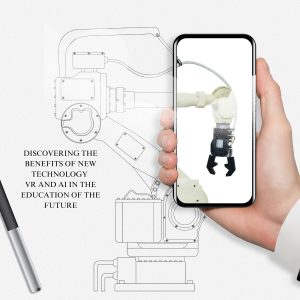
Course Description
In a world where technology shapes every aspect of our lives, education is no exception. Virtual Reality (VR) and Artificial Intelligence (AI) are no longer just buzzwords—they’re tools that can truly transform the way we teach and learn.
This course takes a deep dive into how these technologies can make learning more engaging, inclusive, and impactful. You’ll explore practical ways to use VR and AI in education, gain valuable insights into their potential, and collaborate with others to develop creative solutions for your own teaching or learning environment.
Whether you’re a teacher, trainer, or someone passionate about the future of education, this course will help you unlock new possibilities and bring fresh ideas to your practice.
The program also highlights the role of emotions and social interactions in education, offering strategies to create supportive and engaging learning environments. Each day features interactive activities, group discussions, and practical exercises to help participants apply neuroscience insights to their teaching practices.
By the end of the course, educators will have a clear understanding of how to integrate neuroscience concepts into curricula, foster student engagement, and support diverse learners effectively.
Methodologies Of The Course
The course employs a mix of interactive lectures, hands-on workshops, collaborative group work, and networking opportunities. Participants are encouraged to engage actively, share their experiences, and contribute to discussions.
Learning Outcomes
By the end of this course, participants will be able to:
Type of Certification Awarded
1. Certificate of Attendance
2. Europass Certificate (if requested)
Our courses are designed and delivered in compliance with the quality standards of the Erasmus+ Key Action 1 Quality Standards for Courses.
Schedule of the activities
Online Meeting Program
– Meeting with the trainer
– Presentation of info pack
– Q & A session
Copyright All Rights Reserved. Design & Developed by Themeignite
WhatsApp us